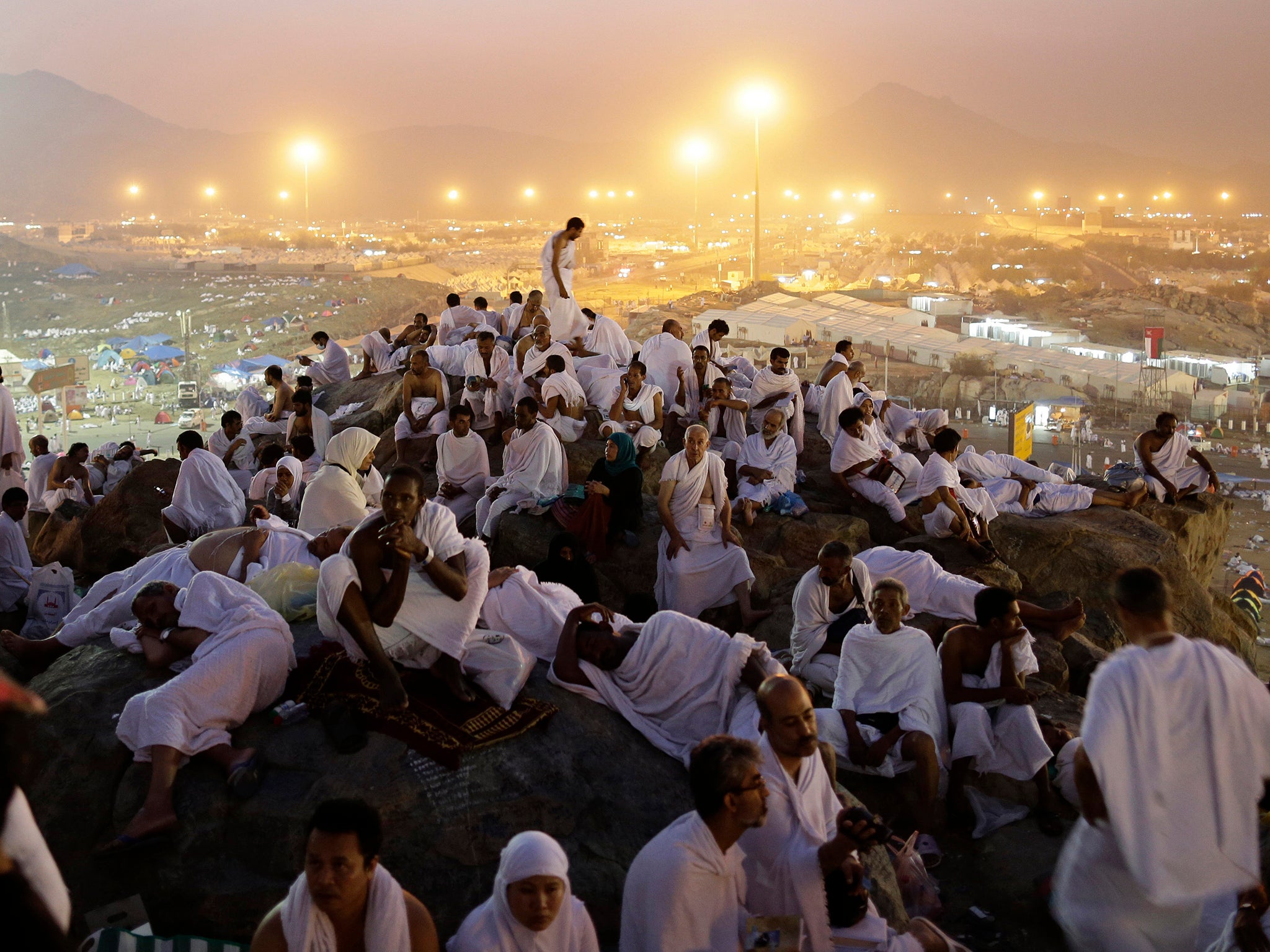What Muslim pilgrims travelling to Mecca can teach us about the migrant crisis
Living a frugal life on the Hajj helps us understand the plight of refugees who have nothing to rely on but each other

While Europe grapples with a surge of desperate refugees fleeing conflict, persecution and poverty, the annual Muslim pilgrimage to Mecca dawns upon us again.
Hajj is no conventional journey, it is a voyage to the land of the prophets of God where the pilgrims symbolically re-enact the rites and rituals of these great prophets. Hajj is also an expedition that is deeply spiritual, with lessons that are universal and very relevant to the present. The pilgrimage is a manifestation of the solidarity and humanitarian principles that are desperately needed today as we are faced with the worst refugee crisis of the 21st century.
More on this:
Isis 'has designs on' Mecca, Medina and Jerusalem
Mecca crane collapse: Deadly accident at Grand Mosque 'a blessing in disguise for those killed'
Sign The Independent's petition to welcome refugees
The simple clothing worn by every pilgrim - whether prince or pauper, black or white - demonstrates the principle of equality, because all wear the same attire. The Prophet of Islam, Muhammad said: "You do not believe until you love for others what you love for yourself" - with the "others" referring to all of humanity despite religious and cultural backgrounds.
More than a million other people, from all corners of the earth, converge for the pilgrimage - together representing a multitude of races, languages, ethnicities, and cultures. This is truly overwhelming as a human tide, so disparate in appearance and background, is totally unified in expressing solidarity in their purpose and aspiration.
It is this diversity and plurality that strengthens the bond of humanity. As the Prophet Muhammad once said: "Man is either your brother in faith or your brother in humanity."
Pilgrims undertaking the Hajj live a very simplistic life, travelling with few possessions, spending nights in tents, sharing what they have, just like those who have left Syria with nothing to begin their own journeys. This spirit of selflessness, and putting others first, leads to empathy and compassion - the very qualities that all Europeans need to call upon now in the search for a solution to the plight of refugees.
The harrowing Syrian catastrophe should not be the responsibility of Europe alone, but the world as a whole; it needs a united response from the international community.
The body of three-year-old Syrian boy Aylan Kurdi washed ashore on a Turkish beach was heart-rending and sparked outrage. The Syrian refugee crisis is a moral imperative for us all - and we must not flunk it.
The outcome of the Hajj is a spiritually enlightening. The journey cultivates three human virtues: humility, equality and compassion. A society based on these values will always respond to others who find themselves on their own tragic journey, and are in desperate need of sollidarity.
Join our commenting forum
Join thought-provoking conversations, follow other Independent readers and see their replies
Comments